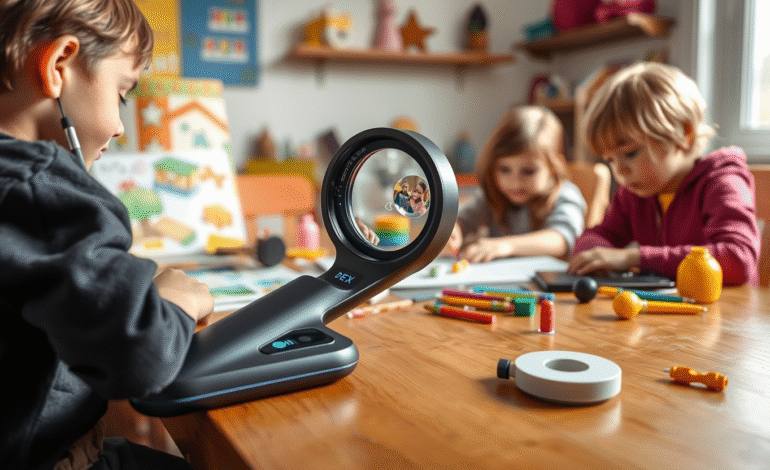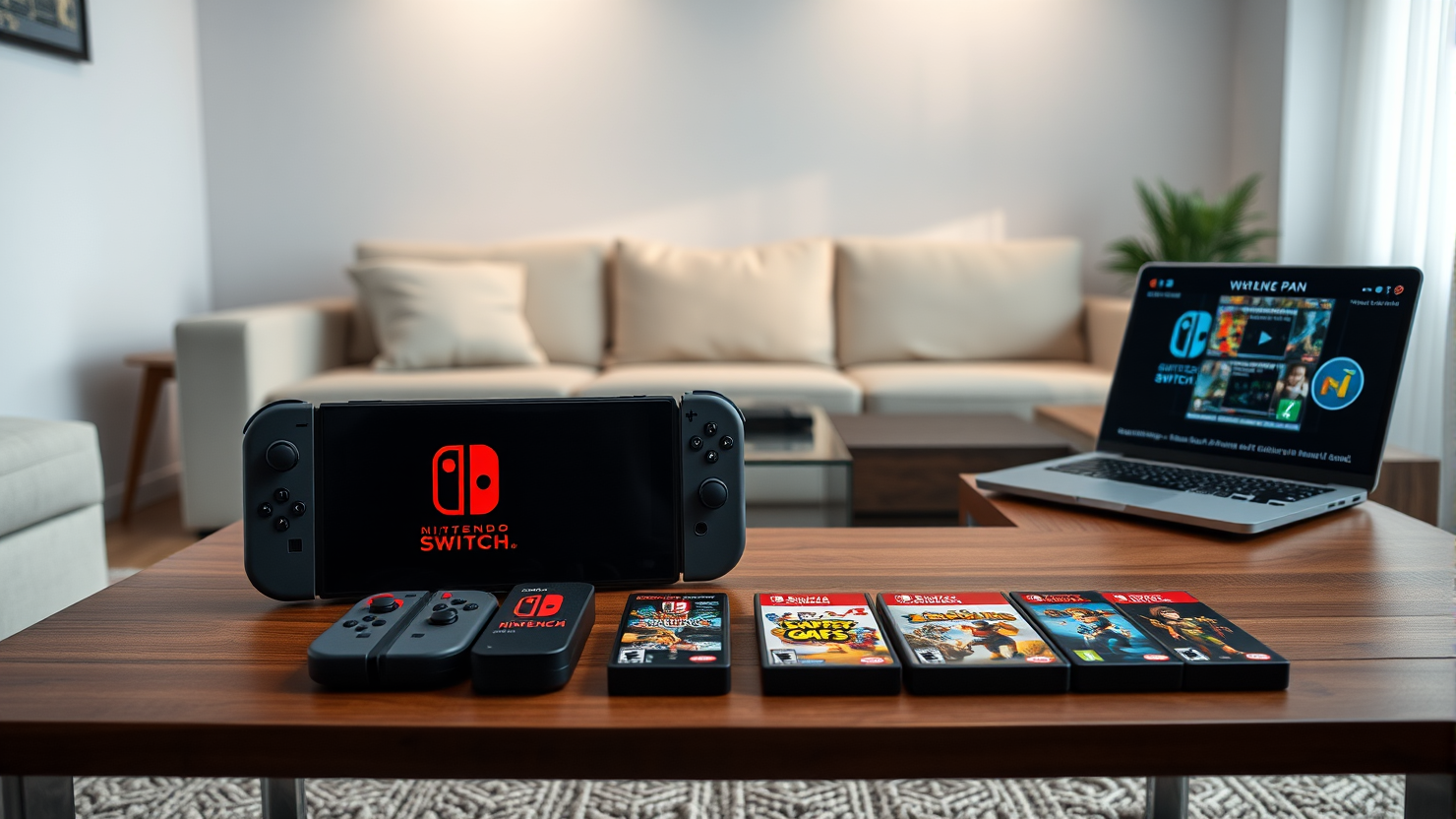High-Tech Learning Gadget Dex Raises $4.8M, Encourages Kids Ages 3-8 to Learn Languages Through Real-World Interactions and AI Technology

A trio of parents – Reni Cao, Xiao Zhang, and Susan Rosenthal – shared concerns about their children’s excessive screen time, prompting them to depart from their tech careers and develop a groundbreaking product that fosters real-world interaction while promoting language learning among youngsters. Their endeavor has proven fruitful, as the company recently secured $4.8 million in funding.
The latest innovation, christened Dex, bears resemblance to a high-tech magnifying glass with a camera lens on one side and a touchscreen display on the other. When children employ the device to capture images of objects, an advanced AI leverages image recognition technology to identify the object and translates the term into the preferred language. The device also encompasses interactive story lessons and games.
Though kid-focused language learning applications such as Duolingo Kids are available, Dex contends that it offers a more immersive approach by emphasizing hands-on experiences, enabling children to engage with the language in a realistic setting.
“Our objective is to impart authentic language within the real world in an interactive manner,” Cao explained. “Children aren’t merely listening or following instructions; instead, they are actively thinking, creating, interacting, and exploring, thereby acquiring the necessary language associated with those concepts and objects.”
Dex caters to children between the ages of 3 and 8 and currently supports Chinese, French, German, Hindi, Italian, Japanese, Korean, and Spanish. It also accommodates 34 dialects, including Egyptian Arabic, Taiwanese Mandarin, and Mexican Spanish.
In addition to object recognition, Dex offers a library of interactive stories that incentivize children to participate actively in the narrative. As the story unfolds, kids are prompted to respond, such as greeting characters in the language they are learning.
The product comes with a dedicated parental app that provides a comprehensive overview of the child’s progress, including the vocabulary words learned, stories engaged with, and consecutive days of use.
Moreover, Dex is currently developing a feature enabling children to engage in free-form conversations with an AI chatbot. This feature has already been made available to select testers but remains under development for a wider release. Parents may express reservations about integrating AI chatbots into their children’s lives.
During testing, concerns were raised regarding the possibility of a child learning inappropriate words. Cao assured that “stringent safety prompts” are incorporated whenever the large language model is utilized across vision, reasoning, and text-to-speech.
He added, “We have an always-on safety agent that assesses conversations in real-time and filters discussions using a safe stop word list. The agent will suppress conversations if any of the stop words are mentioned, including but not limited to those pertaining to sexuality, religion, politics, etc. Parents will soon be able to further customize personalized stop word lists.”
The AI is reportedly trained using vocabulary standards similar to those found in Britannica Kids and other children’s encyclopedias. During testing, the AI successfully ignored topics related to nudity. However, it did recognize and accurately translate the term “gun,” a factor that parents should consider when making a purchase.
In response to these findings, Cao stated, “Regulation-wise, I am not concerned, but I do believe this presents a concern, particularly among some parents.” He further emphasized that these concerns have prompted the company to soon introduce an option in settings to filter out specific words such as guns, cigarettes, vape pens, fireworks, marijuana, and beer bottles.
Dex also follows a zero data retention policy, eliminating any risk of sensitive or personal images being stored. One potential drawback could be that parents are left in the dark about the content their children may capture.
Dex is actively pursuing COPPA certification, which would render it compliant with the Children’s Online Privacy Protection Act.
The company received funding from ClayVC, EmbeddingVC, Parable, and UpscaleX. Notable angel investors include Pinterest founder Ben Silbermann, Curated co-founder Eduardo Vivas, Lillian Weng, former head of safety at OpenAI, and Richard Wong (ex-Coursera).
The device is priced at $250, which may appear steep for a product targeted at children. However, Dex argues that it represents an affordable alternative to hiring a tutor, whose rates can reach up to $80 per hour, or attending a language immersion school, which can cost several hundred to even thousands of dollars.
Dex boasts that hundreds of families have already purchased the device.






